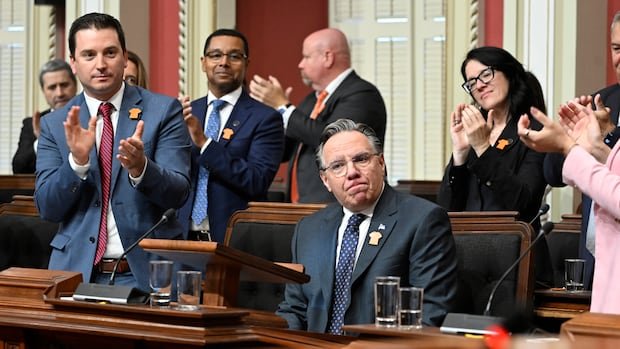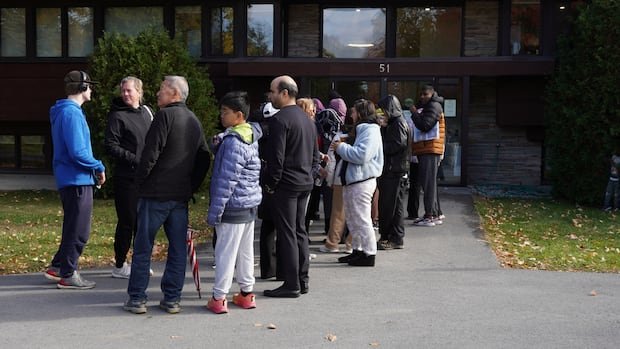British Columbia’s government says if President-elect Donald Trump follows through on his promise to slap a 25 per cent tariff on Canadian goods once his presidency begins, the province could lose about $69 billion by 2028.
The potential economic crisis has led Prime Minister David Eby to order a review of government spending.
The mandate letters to cabinet ministers, sent Thursday, direct almost all ministers to work with the finance minister to “ensure that programs remain relevant, are efficient, grow the economy and help keep costs down.” for British Columbians.
The review could potentially affect things like the $1,000 grocery rebate promised during the election at a cost of $1.8 billion.
British Columbia Finance Minister Brenda Bailey said Thursday that the province has been trying to analyze the impacts of the proposed tariffs since they were announced in November.
Bailey said the tariffs would be “unprecedented in modern times,” which has made it difficult for analysts to determine what might happen. He said the province’s numbers are based on the assumption that a 25 per cent tariff would remain in place during Trump’s presidency and that Canada would retaliate.
But now, the province says the tariffs could mean a significant loss to B.C.’s gross domestic product.
Michael Goehring, president and CEO of the British Columbia Mining Association, says Trump’s threats of 25 per cent could trigger a recession. He tells BC Today host Michelle Eliot that government leaders must emphasize the importance of BC’s supply of crucial minerals to the U.S. in their negotiations with the Trump administration.
An estimated 54 per cent of British Columbia’s exports go to the United States, according to provincial figures, making it British Columbia’s largest trading partner. About 14 per cent of British Columbia’s exports go to China, 11 per cent to Japan and 10 per cent to other jurisdictions in Asia.
The tariffs are also projected to result in 124,000 fewer jobs in British Columbia over the next three years, causing unemployment to rise to 6.7 per cent in 2025 and 7.1 per cent next year.
Economists have struggled to forecast what 2025 will hold for British Columbia, in part because of the threat of tariffs.
“Trade represents about a third of our economy,” David Williams, vice-president of policy at the British Columbia Business Council, told CBC News in December. “If we lose that, we’re really going to struggle from an already challenging position.”
On Thursday, Premier David Eby said the numbers the province has released may seem scary, but he assured British Columbians that the provincial government understands how serious the threat is and is working to mitigate its impact.
“I firmly believe that we have everything we need in this province to be successful… take this threat and turn it into an opportunity to increase prosperity for everyone in this province and for everyone in this country,” he said, pointing to the people. , resources and geography of BC
“British Columbia will lead the response to these tariffs and ensure our people are protected.”
The province says Eby has met with several state governors to explain the devastating impacts the tariffs would have. Eby and other prime ministers will travel to Washington, DC, on February 12, about three weeks after Trump takes office, to fight the threat of tariffs.
Earlier this week, Eby hinted that British Columbia could ban exports of critical minerals produced in British Columbia if Trump goes ahead with the tariffs.
On Thursday he said that these tariff threats are an opportunity to strengthen trade relations with other countries.
Prime Minister Justin Trudeau says the tariffs would “harm American citizens first and foremost,” but they would also be harmful to all Canadians, which is why jurisdictions must support each other, particularly those most affected by the proposed tariffs.
“No region of the country should disproportionately bear the burden of defending Canadians,” he said.








